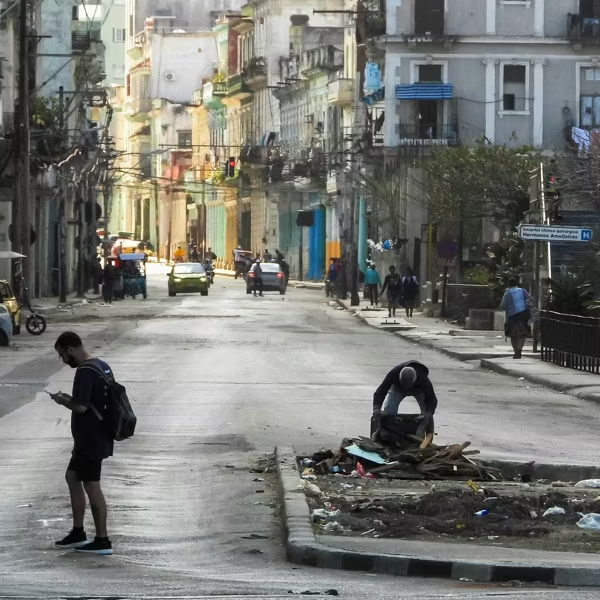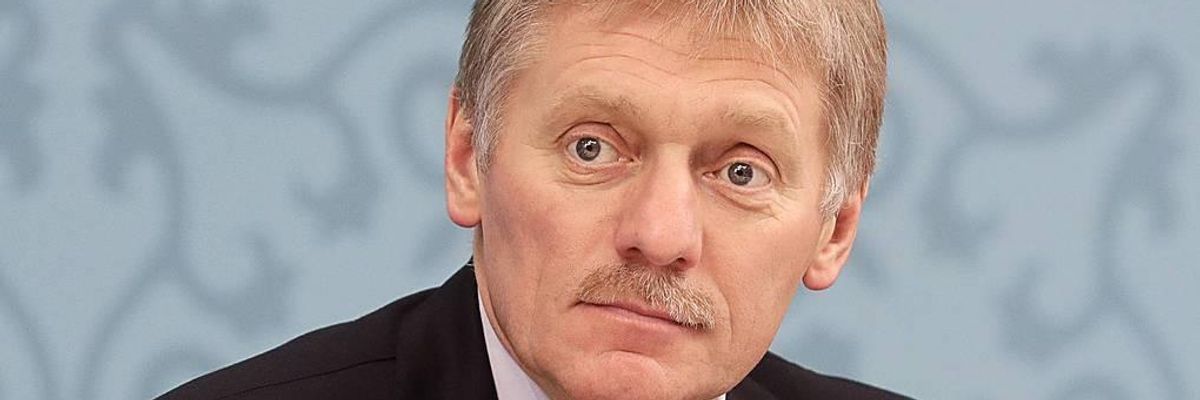Amid concerns that Russian President Vladimir Putin's deadly invasion of Ukraine could lead to a wider war, the Kremlin on Wednesday accused the United States government of waging economic warfare.
"We should remind ourselves that Putin is not synonymous with the Russian people."
"The U.S., undoubtedly, declared an economic war against Russia and they are waging this war. Yes, de facto this is exactly what it is," said Dmitry Peskov, a Kremlin spokesperson.
Peskov's remarks came in response to U.S. Undersecretary of State for Political Affairs Victoria Nuland's testimony at a Senate Foreign Relations Committee hearing Tuesday, according to the Russian state news agency TASS.
"I think his interior mind is now out there and for everybody to see," Nuland said of Putin. "So that's what makes me worried that not only do we have to ensure that this Ukraine gambit is a strategic failure for Putin for Ukraine's sake, but also for all of the other countries in the region, and his appetite has only grown with the eating. So you know, we can't allow this to stand."
Reuters reports that when asked about U.S. President Joe Biden's ban on Russian oil and energy imports, Peskov said that "the situation demands a rather deep analysis" but "if you are asking me what Russia is going to do--Russia is going to do what is necessary to defend its interests."
Peskov's comments came after Putin said over the weekend that Western sanctions imposed in response to the invasion "are akin to declaring war." The statement sparked alarm given his thinly veiled threat about nuclear weapons when he announced the invasion of Ukraine late last month.
Despite the Kremlin's crackdown on critical reporting about the Russian military's assault of Ukraine, anti-war protesters have taken to the streets across Russia, resulting in thousands of arrests over the past two weeks.
NPR reported last week that "everyday Russians are feeling the impact" of sanctions, including store closures, suspended container shipping, lack of support for airlines, the falling value of the ruble, rising interest rates, price hikes, and concerns about being paid by foreign employers.
Robert Reich, former U.S. labor secretary and a public policy professor at the University of California, Berkeley, argued Wednesday that "we should use whatever means are at our disposal to make Vladimir Putin end the brutal war he started. But it is proving difficult to use sanctions on specific oligarchs to get Putin to stop."
In his an opinion piece for The Guardian, Reich wrote:
Perhaps we should be more ambitious. My Berkeley colleague Gabriel Zucman recommends that the U.S. and the European Union freeze all offshore holdings of Russian nationals in excess of $10 million. This would affect about 10,000 to 20,000 Russians who have benefited the most from Putin's rule.
Meanwhile, blanket sanctions against the Russian economy are having an effect. Over the past week they have caused the ruble to collapse and decimated Russian markets.
But the burden has fallen mostly on ordinary Russians, many of whom have already suffered from Putin's brutal regime.
"As we've seen in North Korea and Iran, dictatorships don't depend on popular approval. In fact, widespread hardship can lead to even more repression and violence," Reich added. "We should remind ourselves that Putin is not synonymous with the Russian people."




